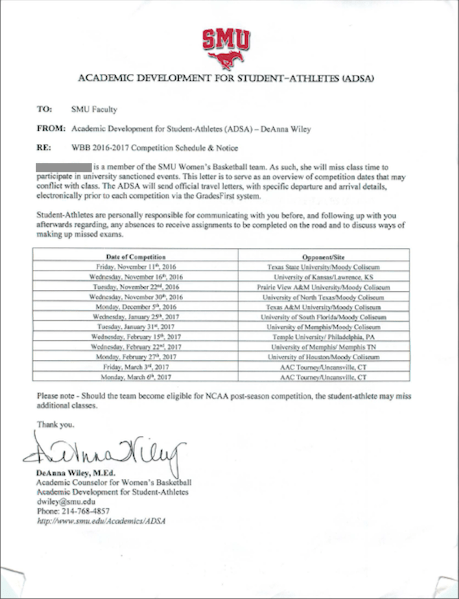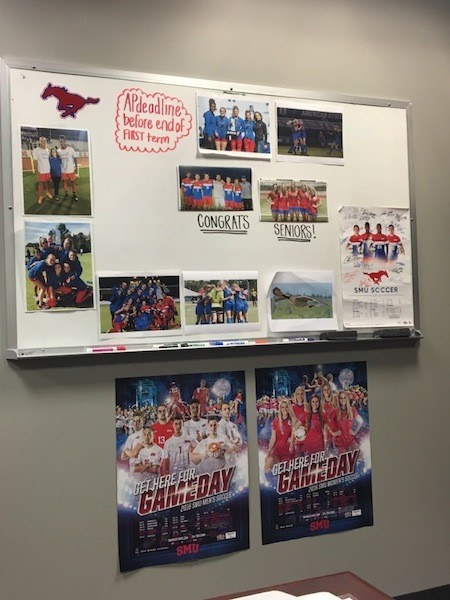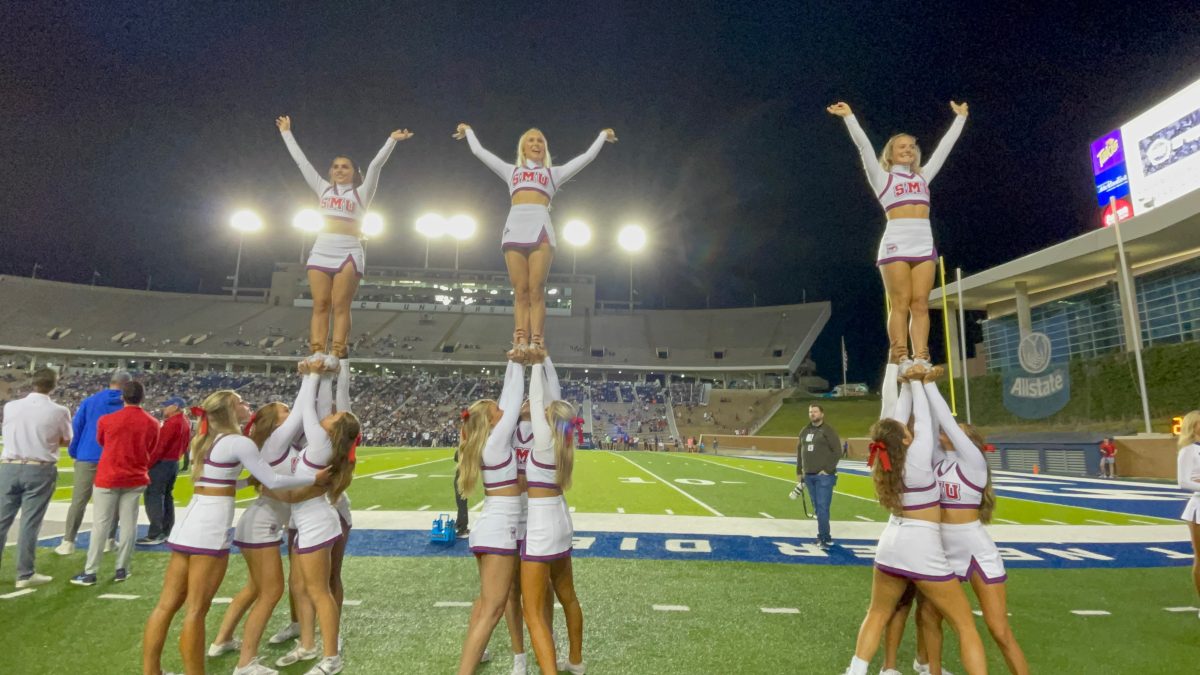Hannah McCain isn’t heading to medical school next fall because she was an athlete in college.
Because of her SMU equestrian schedule, McCain was told by coaches to drop a class her sophomore year to attend practices. As a pre-med major, dropping that chemistry lab put her behind to take the Medical College Admission Test.
“I have to take a gap year before medical school because I had to drop that class and I had to finish everything senior year,” said McCain. “So I’m taking the MCAT senior year and won’t apply to medical school until this summer and I have to wait a whole year until medical school is back in session.”
McCain isn’t the only athlete at SMU who has had to make sacrifices for a collegiate athletic career. The most common sacrifice is missing classes for travel and competitions. But whether that impedes on academic success depends on the student.
The 424 student-athletes at SMU make up 16 Division I teams that compete in 11 different sports. They include football, basketball, rowing, golf, swimming, equestrian, track and field, cross country, volleyball, tennis and soccer.

Senior men’s swimmer Matt Colket says that he misses between 17 and 21 days of class for competition during the school year, but doesn’t think it hurts his education.
“It doesn’t impact my ability to succeed academically,” said Colket. “If you’re smart enough you can handle it. It puts you behind though because when you get back you need to be more dedicated to your work and there’s gonna be makeup work to do.”
According to the athletic department, members of the SMU women’s and men’s golf teams and women’s soccer team are missing the most classes this school year, something faculty has voiced its concerns about. Professor Ross Sloan teaches Discernment and Discourse 1312, a required course for first and second year students.
“I do think in a discussion-based class there’s a certain handicap with not being able to attend regularly,” said Sloan. “Several teams missed nearly every Thursday throughout their season and I teach a Tuesday Thursday class so you’re missing half the content for the week.”
Assistant Athletic Director and Head of Student Services Susan Vollmerhausen said that faculty wanting student-athletes to be at every class is unrealistic. Vollmerhausen adds that a faculty board approves all of the teams travel schedules before the school year begins.
“At some point an institution has made a decision to be a Division I athletic department,” said Vollmerhausen. “And conferences try really hard to take institutional events into consideration, finals, classes, etcetera when scheduling but at some point they’re always going to hit.”
Though they miss a lot of his classes, Sloan admits that the student-athletes are very diligent about making up work. He says the athletic department teaches them to be responsible for their missed classes and to communicate with professors.
“It’s been a lot of years since I’ve had an irresponsible student-athlete,” said Sloan. “I think on average student-athletes are more responsible students in terms of being aware of what’s happening in the class and being aware of deadlines than my average SMU student.”

SMU athlete academic counselor Natalie Pyrz says that keeping up with classes can be challenging, especially with a conference as spread out geographically as the AAC. But Pyrz thinks SMU students are at an advantage because, unlike most schools, the athletes’ academic support falls under the Provost, not the athletic department.
“It‘s easier when we don’t have the pressures of a university’s department of athletics projecting their expectations on us,” said Pyrz. “We’re lucky because the Provost allows us to feel comfortable and confident in supporting them wholeheartedly academically first and foremost.”

And the faculty can accommodate the student-athletes as long as they are just that: students first, and athletes second.
“I think that faculty will be fine as long as we keep admitting students-athletes,” said Sloan. “I think that there will become a problem the minute faculty feel we’ve started admitting athlete-students.”
But for now, faculty agree that this class of student-athletes has a good understanding of their off-field responsibilities.
“I do think its doable but you have to give up some things and have your priorities in the right place,” said McCain, the equestrian rider. “But I wouldn’t trade it for anything. I get to go to a great school, I get to ride horses all day and yes, being a student-athlete has its downfalls, but its benefits more than outweigh the downfalls.”












